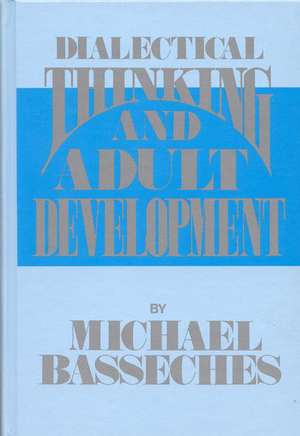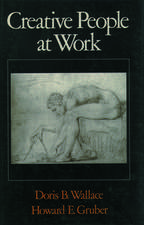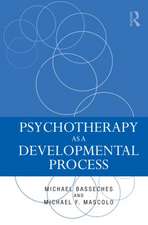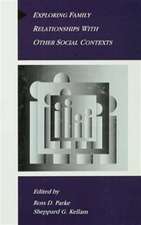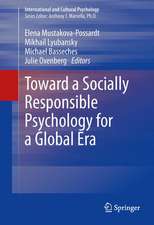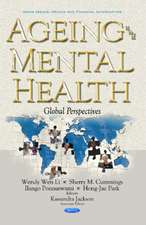Dialectical Thinking and Adult Development: Publications for the Advancement of Theory and History
Howard E. Gruber Autor Michael Bassechesen Limba Engleză Hardback – 31 dec 1983
This book describes and illustrates the nature of dialectical thinking as a cognitive psychological phenomenon, and makes the case that this form of cognitive organizaton is a possible successor to the adolescent formal operations stage. It uses the idea of dialectical thinking to organize theory and research on adult forms of reasoning about specific kinds of issues into a rich and coherent conceptual framework for the study of adult development. This framework makes feasible an approach to the study of adult development firmly rooted in the genetic epistemological tradition as an alternative to the approaches which currently dominate the field.
Preț: 371.13 lei
Preț vechi: 483.68 lei
-23% Nou
Puncte Express: 557
Preț estimativ în valută:
71.02€ • 73.70$ • 59.36£
71.02€ • 73.70$ • 59.36£
Carte tipărită la comandă
Livrare economică 17-31 martie
Preluare comenzi: 021 569.72.76
Specificații
ISBN-13: 9780893910174
ISBN-10: 0893910171
Pagini: 420
Dimensiuni: 150 x 229 x 38 mm
Greutate: 0.84 kg
Editura: Ablex Publishing Corporation
Seria Publications for the Advancement of Theory and History
ISBN-10: 0893910171
Pagini: 420
Dimensiuni: 150 x 229 x 38 mm
Greutate: 0.84 kg
Editura: Ablex Publishing Corporation
Seria Publications for the Advancement of Theory and History
Descriere
This book describes and illustrates the nature of dialectical thinking as a cognitive psychological phenomenon, and makes the case that this form of cognitive organizaton is a possible successor to the adolescent formal operations stage. It uses the idea of dialectical thinking to organize theory and research on adult forms of reasoning about specific kinds of issues into a rich and coherent conceptual framework for the study of adult development. This framework makes feasible an approach to the study of adult development firmly rooted in the genetic epistemological tradition as an alternative to the approaches which currently dominate the field.
